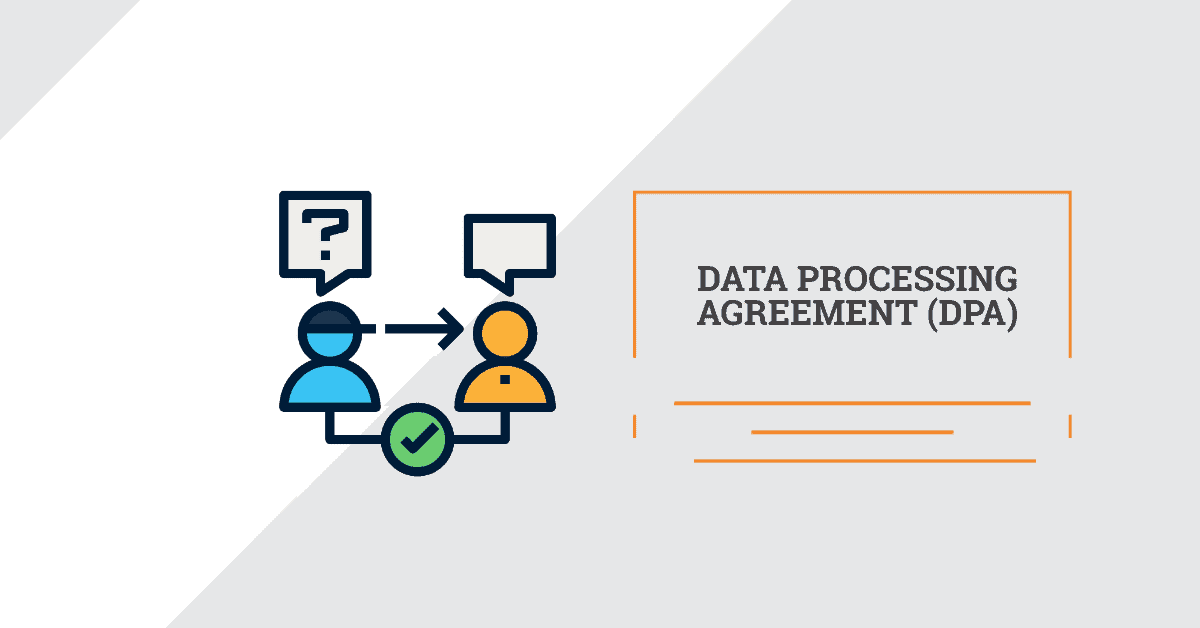A data processing agreement (DPA) refers to a contractual agreement between a data controller and a data processor. It is commonly referred to as a processing agreement or simply as an “agreement”.
The Purpose of a DPA
A data processing agreement (DPA) is an agreement between a data controller and a data processor. It sets out the terms under which the data processor will process personal data on behalf of the data controller.
Data controllers are organisations that collect and use personal information about individuals, for example banks, insurance companies, retailers or government bodies. Data processors are third parties who carry out work for and on behalf of a controller in relation to their processing activities, such as cloud service providers or IT contractors
What is GDPR?
Despite being established by the EU, the GDPR is applicable to any entity that aims at or gathers information about individuals within the EU.
The primary emphasis of the GDPR revolves around personal data and its processing, as well as the roles of data subjects, controllers, and processors. It enforces the requirement of entering into a Data Processing Agreement (DPA) with third-party data processors. If your organization handles data pertaining to EU residents, it is necessary to adhere to GDPR regulations and utilize DPAs. Failure to do so can lead to substantial fines and penalties.
It also applies if an individual uses a service provided by an organization based outside of Europe but does so while physically located within one of its member countries for example by browsing websites hosted on servers located outside their own jurisdiction but accessible only from inside it and if either party wants access to such information then both parties must comply with all relevant laws regarding how such personal data should be handled appropriately before making any requests for access.”
When do I need a DPA?
You need a DPA if you are a business with customers from the EU, or if you offer services to the EU. You also need one if you process personal data for your own purposes.
If you are a business that needs to apply for a DPA, you can use the ICO’s online application form. You will need your company name, address, and VAT number if applicable. Then simply check the appropriate boxes for your business type (e.g., data controller or data processor) and click “submit” to send your application.
If you are not a business and just need to request personal data from an organization, you can use the same application form. However, you will need to check the box that says “individual” rather than “business” and provide your full name and address.
Elements of a DPA
A DPA is a contract between a customer and a service provider. It’s an agreement to process data, protect the data and delete it when no longer needed.
A DPA should be specific about what you want done with your personal information and how long it will be stored for. It also sets out what will happen if there’s an accidental breach of security or if the company goes bust before deleting all the information they hold on you.
DPAs are not just for big companies. They’re also useful for small businesses, sole traders, clubs and societies and other organisations that collect and use personal data. A DPA can help you to:
-understand what information your organisation holds on customers, volunteers or members
-identify where this information is stored (and who has access)
-set out how it will be used and kept secure
Signing a DPA as a customer
If you, as a data subject, have been requested to sign a Data Processing Agreement (DPA), it is crucial to understand its implications. A data processing agreement is a significant document that outlines how your personal information will be managed by the company receiving it. It can also specify the purposes for which they will use your information and the duration for which they will retain it. This is why many companies require their customers that’s you to sign DPAs: to ensure that both parties understand their responsibilities under the law.
If you are requested to sign a Data Processing Agreement (DPA) as a requirement for conducting business with a company or organization, we recommend reviewing our guide on the best approach to this process. By doing so, you can ensure compliance and safeguard yourself from potential liabilities in the future, which we will discuss in more detail later.
Creating a DPA as a service provider
As a service provider, it is necessary for you to establish a Data Processing Agreement (DPA) with every customer who utilizes your services. This agreement should be executed prior to commencing any data processing activities and should encompass essential information such as the names and contact details of both parties involved in the DPA.
A description of the type of personal data being processed;
The purpose for which this information is being collected (if it’s not obvious);
Any other relevant details about how you plan on using their data
Takeaway
A data processing agreement (DPA) is a legally binding document that establishes the agreement between you and your data processor. It outlines the procedures and protocols for handling your personal data, including the duration of data retention and the security measures implemented to protect it.
